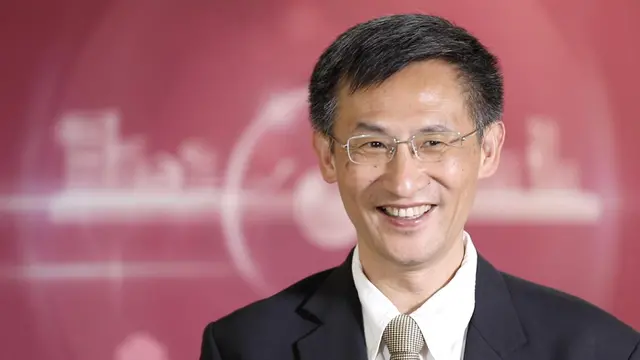Common development is inevitable to achieve good wishes of all mankind, and this is the problem for all human beings rather than only for China, Ju Jiandong, professor at the PBC School of Finance at Tsinghua University, told CGTN last Saturday.
There are indeed both fundamental interest conflicts and cooperation between China and the U.S., said Ju, noting that the conflicts are mainly about global governance.
The U.S. has been the global dominant power for more than one hundred years and would like to maintain that global dominance, Ju stated, adding that China does not intend to challenge U.S. dominance but just wants to maintain its natural growth.
He further clarified that if China, whose population is about four times that of the U.S., keeps its current pace of growth, the size of China's economy would be almost double that of the U.S. in 20 or 30 years, which may result in the U.S. losing its status as the dominant economic power and, as such, is the fundamental conflict of interest.
However, this will not happen just in China, the professor commented, with examples of India or Africa after 10 years, which will also become powerful and impossible to underestimate.
If our dream is all people in the world become equally rich or developed, which I believe will eventually come, then this is not the problem only for China. It is how we ought to understand the dream of the world as human beings together, Ju stressed.
He also reckoned that there is fundamental cooperation between the two countries due to the global value chain since both China and the U.S. are the largest market for each other.
Resource allocation will hedge against the temporary effect of U.S.-raised tariffs on Chinese goods, since resources in China such as labor and capital used to produce products exported to the U.S. can be switched to production anywhere else, according to Ju, while thanks to the variety of resources in China, the effect is about less than one percent of China's GDP.
Now the conflict is beyond only tariff wars, it is already in the technology field with high uncertainty, he said, warning that we need to consider that in the future, that kind of uncertainty will affect the economy of both sides a lot.
Even though Huawei stopped selling products to European or U.S. markets, it still has the largest market, China, which is sufficiently large enough to allow Huawei to develop and survive. However, U.S. banning suppliers to Huawei may lead to many Chinese firms becoming hesitant to buy parts from U.S. companies, he noted.
(CGTN)
 简体中文
简体中文

